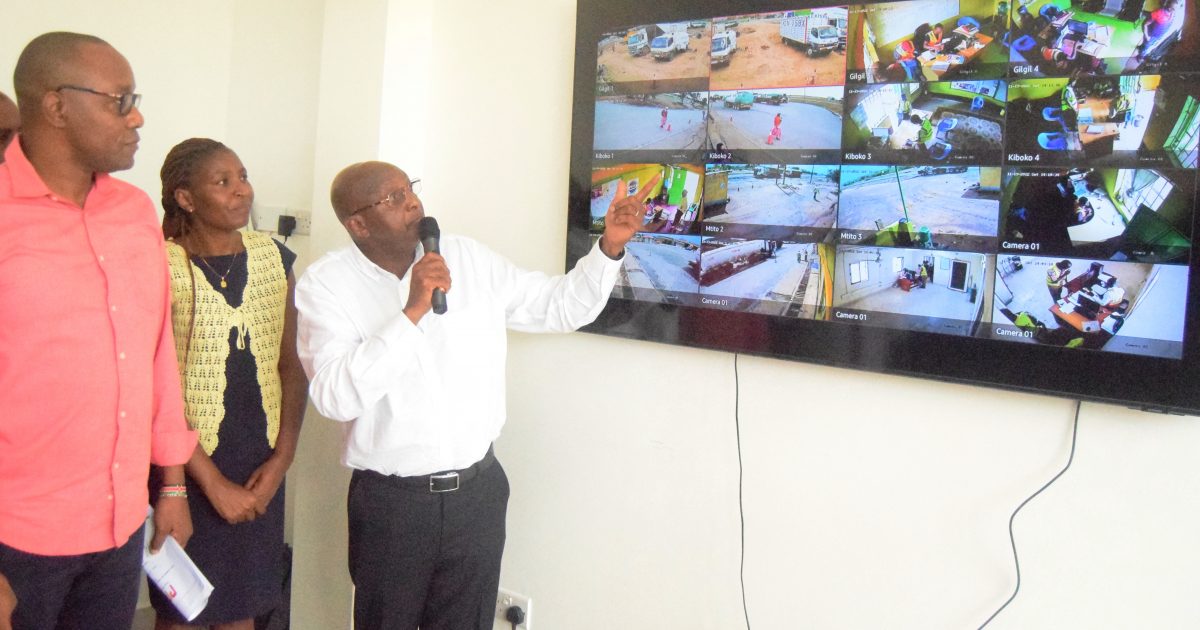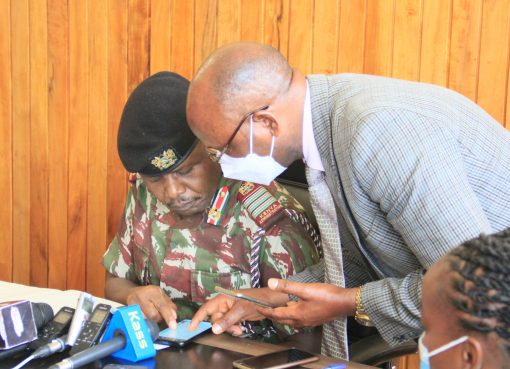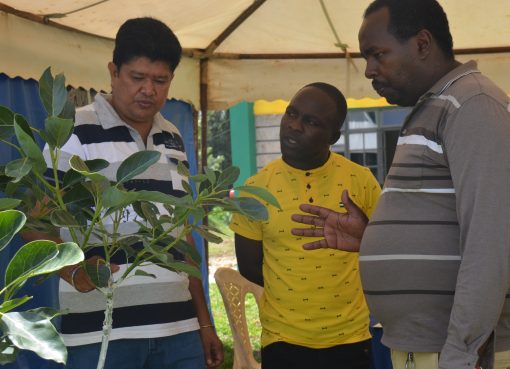The National Transport and Safety Authority (NTSA) and partners have launched Sh2.2 million Closed-Circuit Televisions (CCTV) monitoring system for long distance trucks plying the Northern Corridor.
The Northern Corridor is a busy and an important transport route to the East and Central Africa countries of Burundi, Democratic Republic of Congo (DRC), Kenya, Rwanda, South Sudan and Uganda.
The main Northern Corridor transport network is connected to the Port of Mombasa and includes a road network, railways belonging to Kenya Railways Corporation and Uganda Railways Corporation, rail-lake transport, inland water routes, container terminals commonly regarded locally as ICDs (Inland Container Depots), Tororo Inland Port- whose contract was awarded to Great Lakes Ports Limited of Kenya amid opposition from clearing firms and truck transporters plus an oil pipeline.
NTSA has launched the multi-million CCTV go live program that will assist transporters monitor live updates of drivers while on transit along the northern corridor.
The CCTV cameras will be installed at accident-prone stretches and black spots on the highways.
The launch which took place in Mombasa was as a result of a partnership between NTSA and a private road safety consultant company, Pioneer Road Safety Consultant Limited (PRSC).
Pioneer Road Safety Consultants Limited is a Road Safety and Occupational Health support organization with the sole aim of ensuring lives and equipment are protected on the road through planning for safety.
PRSC has been operating 13 check points since its inception in 2017 to ensure that drivers are in safe and in good condition to continue with their journeys.
The company has developed a journey management service called ‘Checkmate’ with checkpoints along the Northern Corridor.
The company recently added two more checkpoint stations in Idudi and Tororo in Uganda.
“We are doing this because studies have shown that 85 percent of road carnage is caused by human behavior, which we believe can be enhanced by corrective journey management making sure that drivers are rested on the road so that they are not fatigued,” said Habel Amakobe, PRSC founder and Chief Executive Officer (CEO).
Amakobe said that what the company does is to take charge of the driver’s journey management including the driver’s wellness programs and best practices on the road at all checkpoints.
He says road safety training offered to drivers include defense driving, road marshals training for yard trafficking and road control marshals.
“We have 75 transporters using our services, today we are looking at about 15,000 truck drivers on the road since inception in 2017 and they have remained safe all through,” Amakobe said.
The program he said has been sponsored by one of their clients, Motrex limited to a tune of Sh1.7 million including maintenance fees.
The company has also donated nine breathalyzers at a cost of Sh92, 000 per gadget plus annual service fees of Sh7, 000.
“This will help us champion road safety initiatives through driver wellness initiatives at our Maungu checkpoint road side station along the Mombasa-Nairobi highway where we have a nurse and a clinical officer waiting to check on the wellness of our drivers,” he said.
He added, ‘our focus is to ensure that drivers are safe, it makes a difference when drivers leave their homes safely and get back safely to their families’.
Speaking during the event, NTSA coast regional manager Eva Nyawira lauded the initiative as a game changer to the country saying that it will go a long way to curbing road carnage and ensuring safety of drivers along the highways.
Nyawira contends that the journey management solution dubbed Checkmate will provide the ideal platform for fleet owners to monitor, evaluate and plan road trips of any kind so as to minimize chances of road accidents.
She said that for the longest time drivers have been ignored as people thought that they were failures and at fault whenever an accident occurs.
She said that through the new initiative, drivers will be well taken care of so that while they are on the road they know that someone is concerned about them.
“Drivers sometimes face challenges along the road, but through the checkpoints, somebody can meet them and talk to them, listen to their challenges and be able to address some of the challenges and check on their wellness and just check if they are driving safely,” Nyawira said.
She said that road safety is not about one person or institution, but rather it’s about combined efforts to get solutions faced along the road.
She reiterated that the system needs to be replicated in the country not only in the northern corridor but across all major highways in the country so that drivers’ safety can be guaranteed.
“When the drivers are safe then other road users are safe as well,” she said adding that security and safety of drivers go hand in hand.
Truck drivers have recently complained about their security along the major highways after some of them have been hijacked and killed. About nine drivers have lost their lives to hijackers between January and October.
She called on the National Police Service to beef up security along the high risk areas along the highways to curb issues of insecurity to ensure that drivers feel comfortable driving either during the day or at night.
“My advice to all drivers is that do not pick passengers along the road, if you are given a vehicle, drive it to the destination without carrying any unauthorized passengers on the way because that is when you can get hijacked,” she said.
The Kenya Transporters Association (KTA) Chairman Newton Wangoo also lauded the new initiative saying that what checkmate was doing was to give back ownership of the truck to the owners.
“They are now giving us visibility to see and monitor what is happening in all check points, speaking from a user point I can say that we now have control of our trucks,” said Wangoo.
As drivers pass through the check points, they are checked on their well-being and fatigue is controlled too.
They also check on the condition of the trucks, cargo being ferried and if there are passengers or not.
“All trucks sleep at checkmate points, it is not for the drivers to decide where to sleep, for me this kind of journey management is God sent,” Wangoo said.
By Hussein Abdullahi




